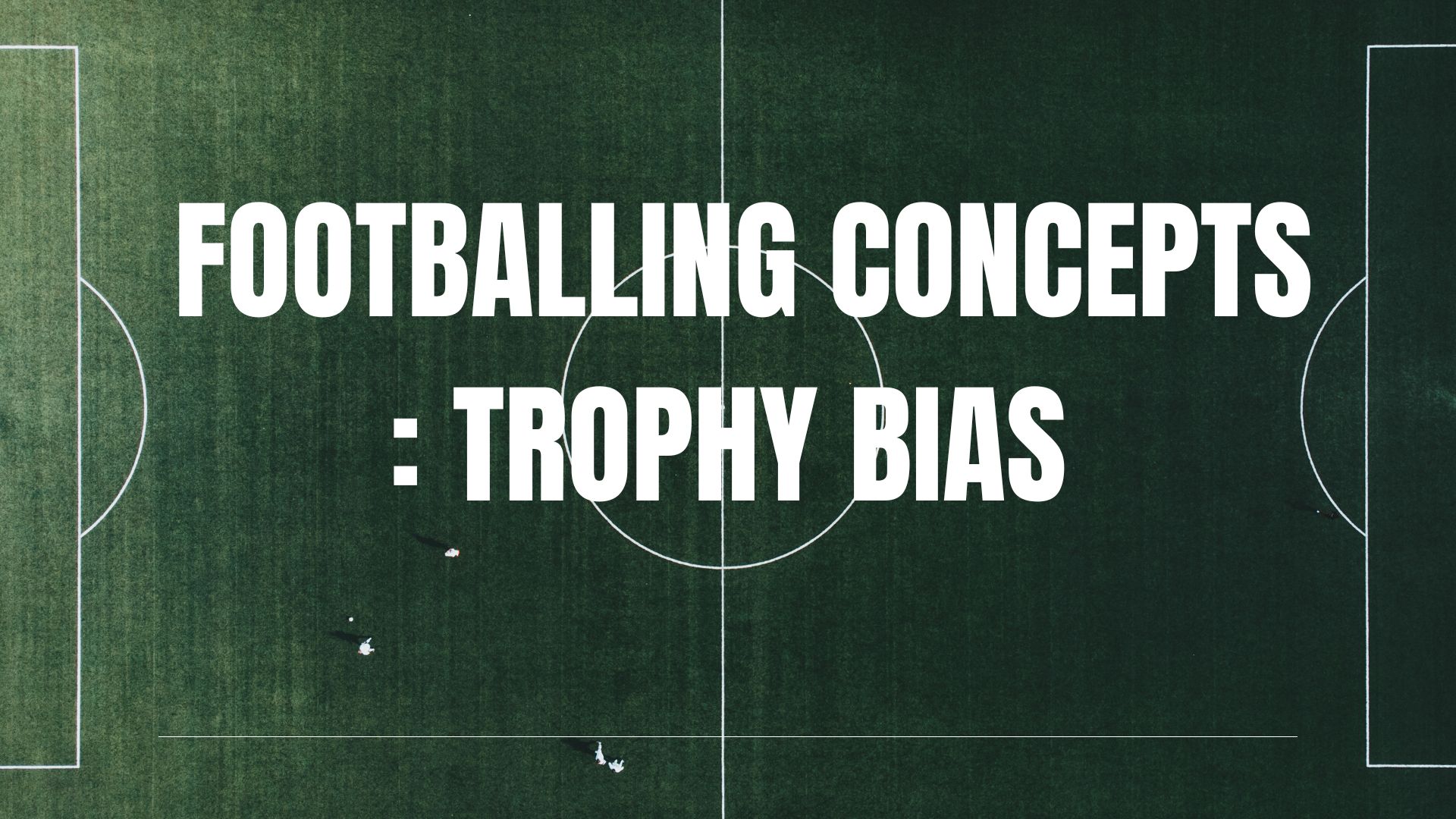The Problems of Trophy Bias in Football
Are Trophies The Only Things That Matter

Trophy bias is one of the strongest shortcuts in football discussion and we are all guilty of it. It is the habit of judging players, managers, or entire teams almost entirely by what they have won, as if medals automatically confirm quality. It is simple, easy to use, and instantly persuasive, which is why fans and the media fall back on it so often. “He has the trophies, so he must be better.”
The problem is that this logic ignores almost everything that actually defines performance. It overlooks context, tactical responsibility, budget, club stability, and the reality that football is a team sport with wildly different starting points. A world-class midfielder at a mid-table club will likely never win what an average squad player at an elite club will. Yet in legacy conversations, the medal count ends up carrying more weight than the football itself. The concept tends to strip careers down to outcomes, and in doing so, it distorts how greatness is understood in the modern game.
Trophy bias has a huge influence on how we talk about players, especially those who played for clubs that rarely lifted silverware. Some of the best technicians, leaders, and most consistent performers of their generation barely enter “greatest ever” debates simply because they never won major titles. It is even worse for defenders and goalkeepers, positions where excellence is harder to quantify. If they are not at a club that dominates and wins trophies, their best work disappears in the wider conversation.
Managers suffer from the same issue. There are brilliant coaches whose teams consistently overperform their budgets, redefine playing styles, or punch far above their weight, yet they are labelled failures because they never added a trophy to the cabinet. Their work is respected in coaching circles but dismissed in mainstream debates.
On the other hand, some managers extend their reputations by winning a single cup or riding the strength of an already powerful squad. That medal allows them to escape scrutiny, even when their methods are outdated or their teams stagnate. The trophy acts as a shield, and the narrative becomes “he wins,” regardless of how much of that success actually came from him. In both cases, trophy bias creates an unfair legacy gap—one based on context, not actual footballing merit.
Trophies do not exist in a vacuum. They sit on top of structures, budgets, and advantages that shape everything beneath them. In the modern era of extreme financial inequality, the biggest clubs enter every season with squads worth hundreds of millions more than most of their opponents. They have deeper benches, better facilities, more experienced staff, and the luxury of rotating without losing quality. When those clubs win, the achievement is celebrated as individual greatness, when in reality the institutional gap did half the work.
This is where trophy bias becomes misleading. Finishing third with a squad that costs a fraction of the league winner’s budget is often arguably a far greater managerial achievement than winning the title with unlimited resources. But only the trophy goes into the history books, meaning context disappears with time.
The same applies to players. Many top talents commit to mid-table or local clubs, where winning major trophies is statistically unlikely. Their loyalty becomes a penalty against them in legacy debates, even if they delivered elite performances year after year. Meanwhile, one decisive moment in a cup final, a goal, a save, a single highlight, can overshadow someone else’s entire season of consistency.
Trophy bias rewards the moment, not the excellence that kept a team competitive in the first place. Modern football’s commercial system feeds trophy bias because trophies are the easiest stories to sell. Brands and broadcasters prefer clean narratives, and nothing is cleaner than “winner.” A single image of a player lifting a cup instantly becomes marketable content worth millions. It is far more convenient than explaining a player’s tactical role, pressing numbers, or influence on team structure.
This also fuels the modern obsession with the “winner’s mentality.” Pundits lean on it because it sounds authoritative, even though it explains very little. Matches are decided by tactics, execution, squad depth, and luck, but those details rarely go viral. Saying “they won because they’re winners” creates a circular argument that protects the result from deeper analysis.
Individual awards suffer the same fate. Ballon d’Or votes, Player of the Year awards, and even Team of the Season lists usually tilt toward players who won the biggest trophies that year. Whether or not they were actually the best performers becomes secondary. Someone who delivered extraordinary numbers but played for a weaker club gets ignored, while a player with a solid but unspectacular season is pushed forward simply because their team lifted something shiny. The media amplifies this imbalance, and over time, the narrative hardens into accepted truth.
Trophies will always matter in football, but they should never be the only measure of greatness. They reward the outcome, not the context. They highlight the final chapter, not the story that led there. Trophy bias is powerful because it gives fans and media a simple answer to a complex question, who is the best?, but that simplicity comes at the cost of accuracy. It ignores budgets, tactical environments, squad depth, and the realities of competing against institutional giants.
If we want a clearer picture of football history, we need to look past the medal count. Start with the circumstances a player or manager faced, the quality they delivered over time, the influence they had on a team’s identity, and the performances that held everything together when results could have gone either way. Those details tell us far more about excellence than a trophy parade.
In the end, the true legacy of a great football figure lives in the impact they had on the pitch and in the ideas they left behind, not just in the silverware they lifted. Football is richer, more honest, and far more interesting when we acknowledge that.







